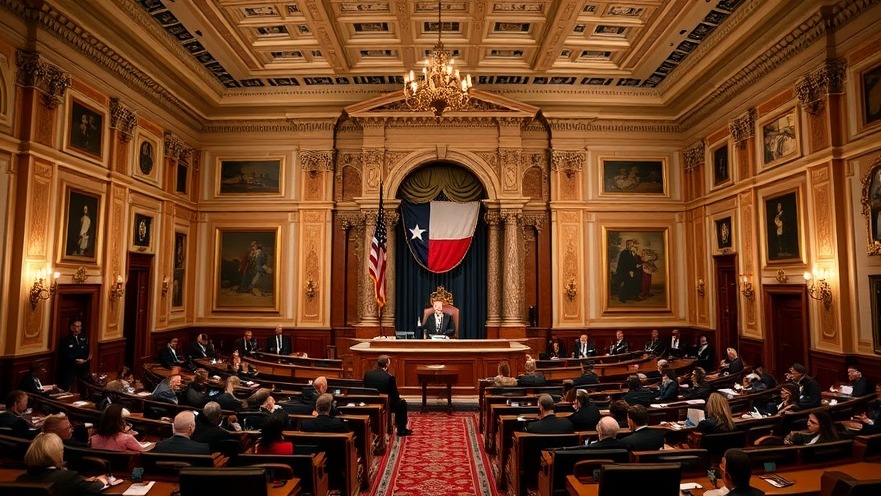
The Senate's Latest Move: GOP Tax and Spending Bill Approved
Following a lengthy and intense 26-hour voting session, the Senate has successfully passed its version of the Republican-led tax and spending bill, a significant piece of legislation that includes key Texas priorities championed by Senators John Cornyn and Ted Cruz. While this bill, dubbed the "One Big Beautiful Bill", pushes forward with funding to bolster Texas' border security initiatives and various tax changes, it faces potential hurdles in the House, particularly from other Texas Republicans who initially supported more aggressive budget cuts.
In Depth: What the Bill Contains
At the heart of this monumental bill is a $13.5 billion allocation aimed at reimbursing states, particularly Texas, for border security expenses related to Governor Greg Abbott's "Operation Lone Star." This funding not only reflects the state’s investment in maintaining border security but also signifies a major win for Cornyn, who advocated vigorously for this financial support. This amount marks an increase from the previously proposed $12 billion outlined in the House version.
Additional major provisions include the elimination of specific taxes on firearms and silencers, alongside a new proposal that encourages the relocation of the Space Shuttle Discovery to Houston. This alignment with both local and national interests highlights how Texas Republicans are striving to weave their regional concerns into broader legislative frameworks.
A Focus on Education and Child Growth Initiatives
Senator Cruz found success in integrating several critical education-related provisions into the legislation. One of the most ambitious is the introduction of $1,000 government-funded investment accounts for every American child, commonly referred to as “Trump accounts.” These funds can pave the way for children to take on educational expenses, assist in home purchasing, or even support budding entrepreneurs as they start small businesses.
Cruz also succeeded in securing a substantial $1,700 tax credit for individuals who contribute to scholarships that allow low-income families to send their children to private schools. This initiative, resembling the framework of private school vouchers, aligns with the Texas Republican agenda which promotes educational choice.
Wi-Fi for Future Generations: The Auction of Wireless Spectrum
In addition to education funding, Cruz proposed a groundbreaking measure allowing parts of the government-owned wireless spectrum to be auctioned to companies. This move is perceived as a strategic initiative to stimulate technological innovation while potentially generating new revenues for the federal government.
Contentious Elements: AI Regulation Debate
However, not all provisions in the bill are straightforward wins. One contentious issue involves a proposal that mandates a 10-year moratorium on state regulation of artificial intelligence to access a significant $500 million federal fund for AI infrastructure. Following resistance, particularly from Senator Marsha Blackburn, Cruz navigated alterations in the regulation timeframe, ultimately seeking a compromise. While these changes aim to ease concerns regarding overreach, they continue to stir debate over the ethical implications of AI regulation.
The Reactions from Texas lawmakers
Notably, the bill has already drawn fire from within Texas’ political ranks, particularly from senators who argue it doesn’t go far enough in budget cuts or fails to address certain pressing issues. This internal strife showcases the continued division among Texas Republicans, reflecting the nuanced balance lawmakers must strike between local priorities and broader national GOP objectives.
What’s Next for the Bill?
As this ambitious package re-enters the House, it remains to be seen whether it encounters the same level of support it enjoyed in the Senate. With the potential for significant revisions, Texas residents and politicians alike are keenly watching how this legislation—crafted with Texas interests at its core—will evolve.
Final Thoughts: The Impact on Texas Politics and Policy
This bill encapsulates the dynamic landscape of Texas politics, emphasizing urgent state issues like border security and educational equity while balancing broader national Republican priorities. As the situation develops and the bill potentially hits roadblocks, the response from Texas voters and lawmakers will offer crucial insights into the direction of Texas politics leading up to the 2025 elections.
 Add Element
Add Element  Add Row
Add Row 



Write A Comment